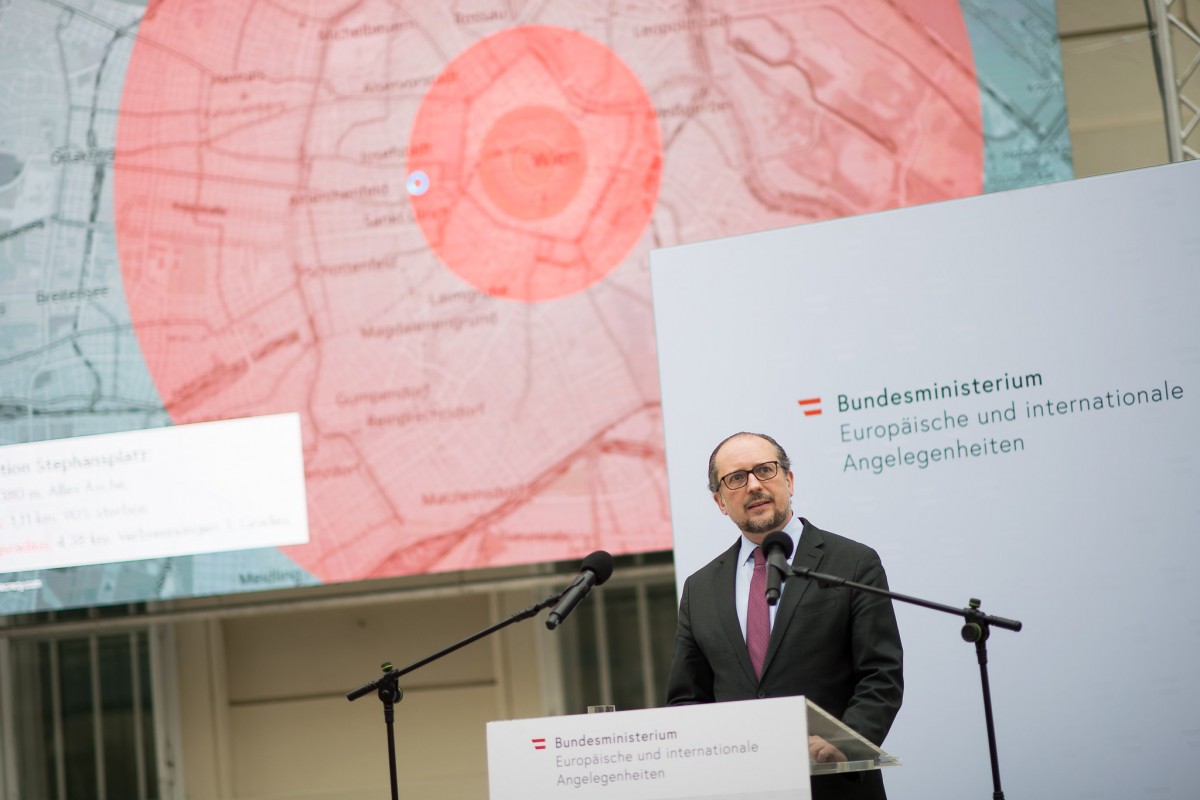Sponsored Content
Schallenberg Warns About Nuclear Weapons on the Anniversary of the TPNW
On the second anniversary of the Treaty on the Prohibition of Nuclear Weapons (TPNW), Austrian Foreign Minister Alexander Schallenberg gave strong warnings about the threats and use of nuclear weapons.
 Foreign Minister Schallenberg Warned About Threats With Nuclear Weapons On the Second TPNW Anniversary. / Picture: © BMEIA Bundesministerium für Europa, Integration und Äußeres / Gruber / Flickr Attribution 2.0 Generic (CC BY 2.0)
Foreign Minister Schallenberg Warned About Threats With Nuclear Weapons On the Second TPNW Anniversary. / Picture: © BMEIA Bundesministerium für Europa, Integration und Äußeres / Gruber / Flickr Attribution 2.0 Generic (CC BY 2.0)
“Threats with nuclear weapons are extremely dangerous. Not only are they completely morally unacceptable, but they also lower the inhibition threshold for others and violate international law. There is no alternative to nuclear disarmament because as long as these terrible weapons exist, they pose a threat to all of us. We must destroy them before they destroy us” stressed Foreign…
or Log In
Fast News Search





